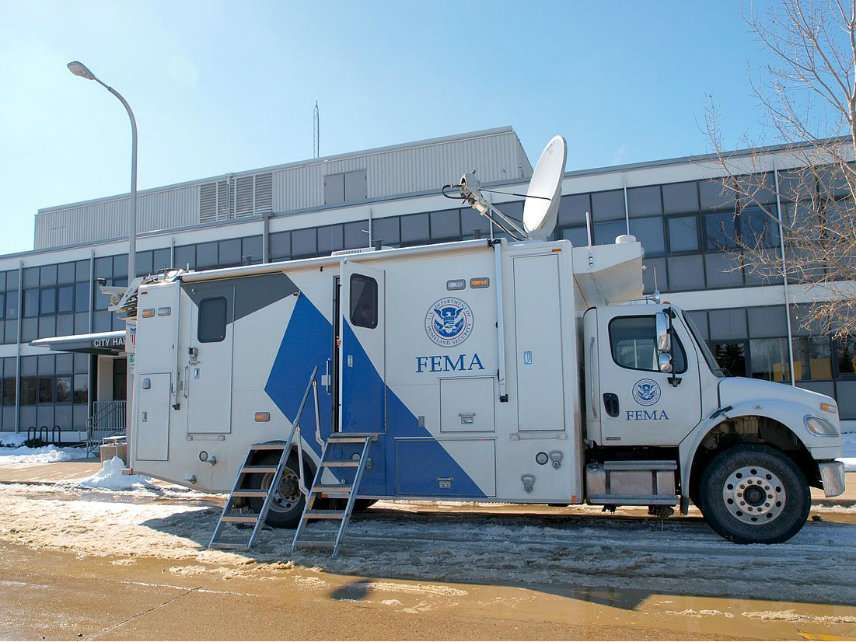The Whitefish Contract Is a Natural Consequence of FEMA's Mismanagement
Free money and poor oversight sap the incentive of localities to prepare for disasters or respond to them effectively.

Congress approved some $36.5 billion in appropriations to the Federal Emergency Management Agency (FEMA) for disaster relief efforts. Taxpayers should hold out little hope this money will be well spent.
Take, for instance, the $300 million no-bid electrical grid repair contract Puerto Rico's power utility PREPA handed to the inadequate, but well-connected Whitefish contracting firm. PREPA reportedly is paying Whitefish's electrical workers $332.41 a day for accommodations alone.
The Whitefish contract expressly forbids FEMA (which is responsible for bankrolling the contract) from auditing Whitefish's performance, as Reason's Eric Boehm reported earlier today.
It's an insane provision, but probably an unnecessary one, given how little audits of FEMA's past spending have done to improve agency performance.
The latest audit of FEMA's 2015 disaster relief spending found nearly a third of it "questionable costs, such as duplicate payments, unsupported costs, improper contract costs, and unauthorized expenditures."
From 2009 to 2015, FEMA misspent or wasted more than $10 billion, or 37 percent of the funds examined in the audit. Despite the damning results, FEMA has failed to act on nearly 90 percent of the improvements recommended by the auditors.
The Department of Homeland Security Inspector General John Roth—who is responsible for overseeing FEMA—was so angry about it he sent a letter in June to Homeland Security Committee Chairman Sen. Ron Johnson (R–Wis.) expressing"frustration in our lack of progress in getting FEMA or Congress to pay attention to this," Bloomberg reported yesterday.
Roth was particularly piqued by another $2 billion FEMA award to the City of New Orleans to fix its sewer system, after having given the city $785 million in December of 2015 to repair sewer damage from the 2005 hurricanes Katrina and Rita.
From January through May of 2016, DHS staffers repeatedly expressed the opinion the damage was the result of local negligence and questioned the appropriateness of a federal fix. FEMA listened carefully—and in July gave New Orleans another $1.25 billion.
A quick survey of DHS audits of FEMA spending this year shows millions in no-bid contracts and duplicate spending everywhere from Suffolk, Connecticut to Lavellette, New Jersey.
The availability of federal disaster relief encourages this kind of burden shifting by local governments, Chris Edwards of the Cato Institute, tells Reason. "When they know the federal government is going to bail them out, it provides less incentive to prepare for disasters, and make these places more resilient."
Long before Hurricane Maria knocked out power to some 95 percent of residents, Puerto Rico's PREPA power company suffered from mismanagement, crumbling infrastructure, and crippling debt. The grid was particularly vulnerable to hurricane damage and the hurricane ensured that federal taxpayers would pick up the bill.
FEMA's track record suggests many of its functions should be spun off. "Poor management year after year, decade after decade," Edwards tells Reason, "suggests that maybe some of these things should be moved out of governments and into markets."
Until the unlikely chance that happens, we can expect hurricanes will continue to wash up plenty of Whitefish.
Rent Free is a weekly newsletter from Christian Britschgi on urbanism and the fight for less regulation, more housing, more property rights, and more freedom in America's cities.


Show Comments (11)